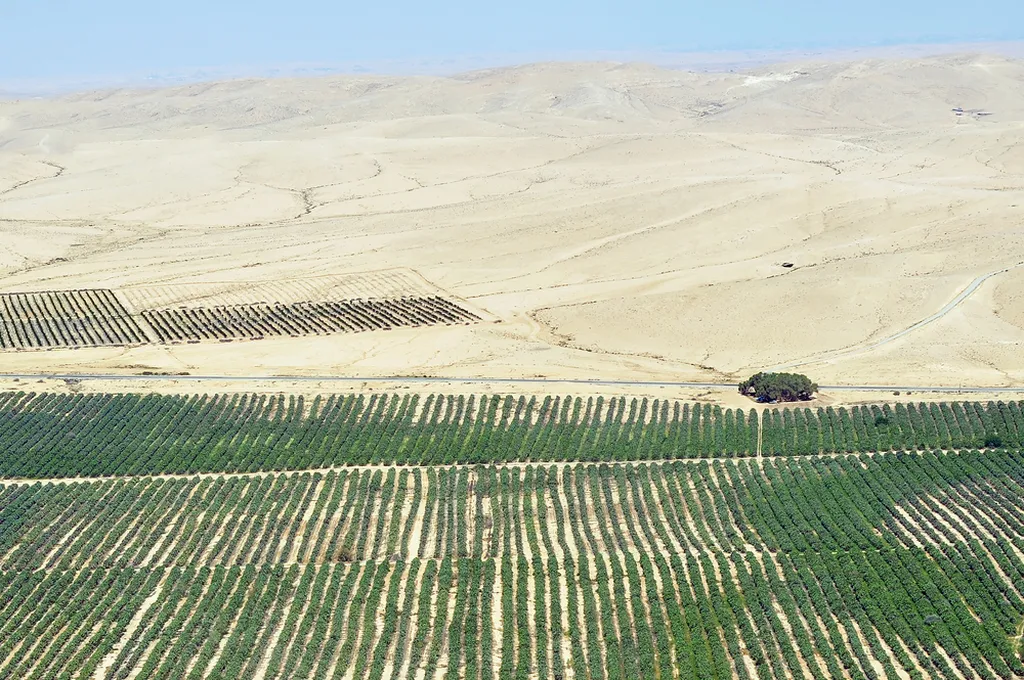Israel’s agricultural sector has undergone a profound transformation since the early 20th century, evolving from a subsistence-based system into a global powerhouse of innovation. The shift began with the cultivation of wheat, citrus, and vegetables, driven by the need to maximize yields in a harsh climate. Central to this evolution was the kibbutz movement, which combined communal living with collective farming—a model that fostered knowledge-sharing and early technological adoption. While agriculture’s share of Israel’s GDP has steadily declined from 6% in 1979 to around 1.26% today, the sector’s efficiency and technological advancements have positioned it as a leader in global AgTech.
The latest GDP figures reflect this resilience. In the third quarter of 2023, agricultural output reached USD 1,176.88 million, up from USD 1,148.53 million in the previous quarter. This growth aligns with a broader trend: despite a shrinking economic footprint, Israeli agriculture has become more productive, leveraging cutting-edge technology to overcome environmental constraints. Government initiatives, such as the 2022 plan to expand agricultural lands and provide 10 million shekels in support to new farmers, underscore a commitment to sustaining this momentum.
At the heart of Israel’s AgTech success are companies like Netafim, which pioneered drip irrigation, and ADAMA, a global leader in crop protection. Startups like Taranis use AI to optimize field monitoring, while CropX and SupPlant deploy sensor-based systems to enhance irrigation efficiency. Biotechnology firms, including Evogene and Groundwork BioAg, are developing drought-resistant crops and microbial solutions to improve soil health. Meanwhile, advancements in controlled-environment agriculture—such as GrowTec’s vertical farming systems—are redefining how food is grown in resource-limited settings.
The government has played a pivotal role in nurturing this ecosystem. Through the Ministry of Agriculture, Israel offers R&D grants, tax incentives, and incubator programs, such as the “Innovation Lab,” which supports early-stage AgTech ventures. These efforts have paid off: AgTech exports, ranging from irrigation systems to AI-driven crop management tools, contribute hundreds of millions annually to the economy, reinforcing Israel’s reputation as a global innovator.
Yet challenges remain. Water scarcity, exacerbated by climate change, demands continuous innovation in conservation technologies. Geopolitical tensions can disrupt regional collaboration, while economic barriers—such as high technology costs and regulatory hurdles—limit market expansion. Additionally, integrating advanced solutions into traditional farming practices remains a hurdle, particularly in less developed regions.
Looking ahead, Israel’s AgTech sector must balance innovation with practicality, ensuring that breakthroughs translate into scalable, cost-effective solutions. As climate pressures intensify, the sector’s ability to adapt—through resilient crops, precision agriculture, and sustainable resource management—will determine its long-term impact, both domestically and on the global stage.

